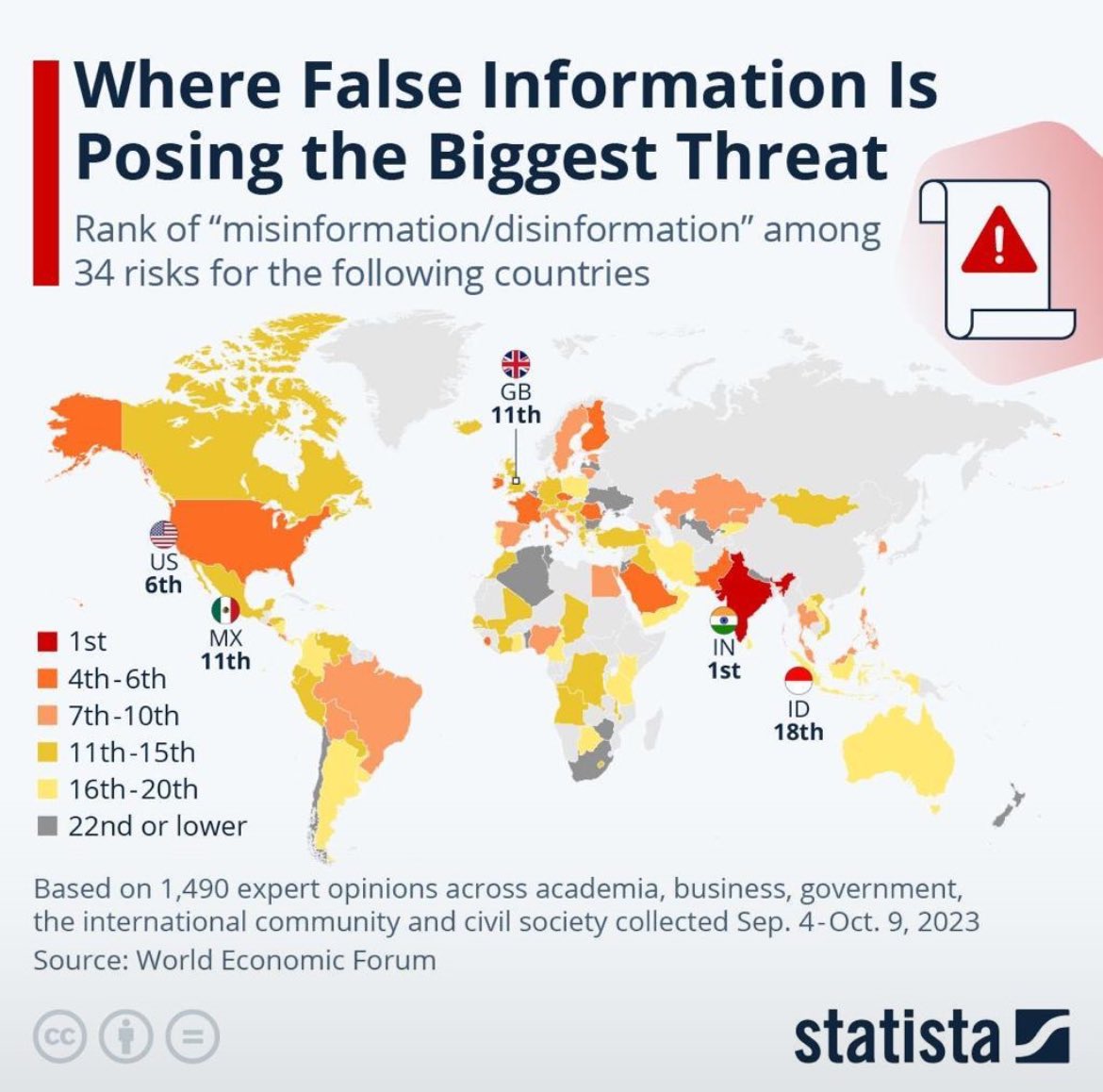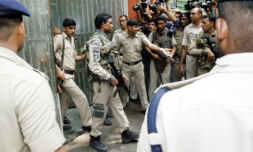In its risk report, the World Economic Forum warns how Indian elections in 2024 could be swayed by the rampant spread of misinformation and disinformation.
Close to 3 billion voters – approximately a quarter of the world’s population – are expected to be heading to electoral polls this year and thus 2024 has been dubbed a ‘super election year’ or even the biggest election year in history.
This is aided by closely watched elections in populous countries like United States, Mexico, India, and Indonesia, among others, that will be going ahead in the next 12 months.
With the disastrous start that the Bangladesh national elections were, concerns that the World Economic Forum’s ‘Global Risks Report 2024’ outlines are very real.
As its name suggests, the document charts what risks lie ahead for us in various forms. With the widespread rise of misinformation and disinformation and the advent of tools to disseminate it, newly elected governments may have a large question about their victories and legitimacy.
Disinformation and misinformation was voted the biggest threat for India out of 34 risks and was identified as the 6th biggest risk out of 34 in the US. This data is based on 1,490 expert opinions across academia, business, government, the international community, and civil society, with a survey collected September 4 to October 9, 2023.
India faces onslaught of misinformation
As the world’s largest democracy prepares for general elections in 2024, all eyes are on India and its ability to conduct free and fair polls for its massive electorate of over a billion voters. However, the task is proving increasingly complex in the internet era with the unchecked spread of misinformation threatening to undermine democratic values.
This concern was highlighted in a recent World Economic Forum survey which warned that India faces a tide of misinformation ahead of the 2024 Lok Sabha elections that could infringe on the integrity of the entire process.
For the Indian political scene, the spread of false news is nothing new. Even mainstream media and news channels propagate it without much fact-checking.
The recent controversy around Poonam Pandey is testament to how easily false news spreads across the nation in a multitude of ways. Unchecked news on YouTube, WhatsApp shares that reach a humongous public, and a heavily controlled media business where state censorship is high are among the most offending vehicles.
If such a barrage of misinformation floods Indian cyberspace during the upcoming Lok Sabha elections, it could hijack political discourse and severely infringe on informed democratic choice.
‘Beyond elections, perceptions of reality are also likely to become more polarized, infiltrating public discourse on diverse issues from healthcare to social justice,’ the report warns. When sections of society inhabit distorted versions of reality shaped by unchecked assertions, the foundations of democracy begin to erode.
India Today special investigation nails misinformation campaign around EVM tampering. Madhya Pradesh Congress election agents are caught on camera admitting that EVM conspiracy theory was fabricated. pic.twitter.com/o7QhAdKqgK
— BJP (@BJP4India) December 10, 2018





















